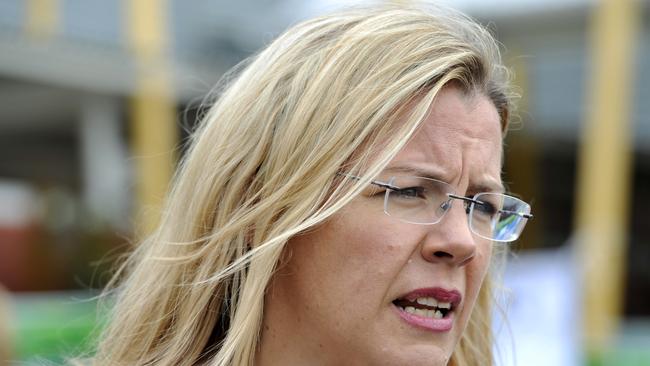WA election: Liberals left with a rump of a party
The McGowan government’s win is so comprehensive, legislation may need to be amended to help the Nationals and Liberals form a functioning opposition.

The McGowan government’s historic election win is so comprehensive, legislation may need to be amended to help the Nationals and Liberals form a functioning opposition.
West Australian Labor has won several blue-ribbon Liberal seats for the first time and was on track late on Sunday to claim at least 52 out of 59 lower house seats. Political analysts also said Labor was also on track to take control of the upper house.
Liberal leader Zak Kirkup became the first major party leader to lose his seat in Western Australia in 88 years. He was ousted by Labor’s Lisa Munday and says he will not contest office again.
WA Liberals were on Sunday faced with the prospect of retaining just two out of 59 lower house seats in the parliament.
The party’s Treasury spokesman, David Honey, held on in the expensive beachside suburb of Cottesloe, part of the federal electorate of Curtin.
In the winegrowing region of Margaret River in the state’s southwest, party deputy leader Libby Mettam retained Vasse.
In the upper house, the Liberals did not come close to winning any of the six mining and pastoral seats, and were humiliated to learn they were beaten to seventh place by the Daylight Saving Party.
Former premier Colin Barnett told The Australian the state was now faced with an unworkable parliament in which it appeared likely Labor would hold at least 52 out of 59 lower house seats and dominate the upper house.
“I don’t know how the parliament will function at all,” he said.
“There are practical things. How do committees operate? You could have parliamentary committees with five Labor members, so those sorts of things become quite dysfunctional.”
Notre Dame University politics lecturer Martin Drum said Nationals leader Mia Davies would be the opposition leader by convention because her party was on track to win more seats than the Liberals in the lower house. Late on Sunday the Nationals were predicted to win at least four seats.
But Professor Drum said legislation about the allocation of resources to opposition parties may need to be altered to give both the Nationals and the Liberals the staff they would need to properly scrutinise Labor’s legislative agenda.
The seats that fell to Labor on Saturday night were some that had never been held by the party before: the Perth seats of Nedlands, South Perth, Bateman and Carine changed hands. The seats held by the Liberal Party’s past three leaders — Dawesville, Scarborough and Riverton — also fell to Labor.
The election-eve Newspoll showed that 34 per cent of Liberal voters planned to vote for Labor on Saturday, a scale of desertion that political strategists did not believe was possible. The obliteration of the Liberal Party proved that it was.
As counting continued on Sunday, more than 10 Labor candidates were in front with two party-preferred splits of 80-20 or better.
In the Perth seat of Churchlands, previously a safe Liberal seat, incumbent Sean L’Estrange was behind his Labor challenger. Churchlands is in the golden triangle of real estate between the Swan River and the Indian Ocean. Until Saturday, all seats in those suburbs were held by the Liberal Party. It is where the party has traditionally found its premiers, treasurers and attorneys-general.
“This is ground zero for the Liberal Party,” Mr L’Estrange told party supporters at his election night function.




To join the conversation, please log in. Don't have an account? Register
Join the conversation, you are commenting as Logout